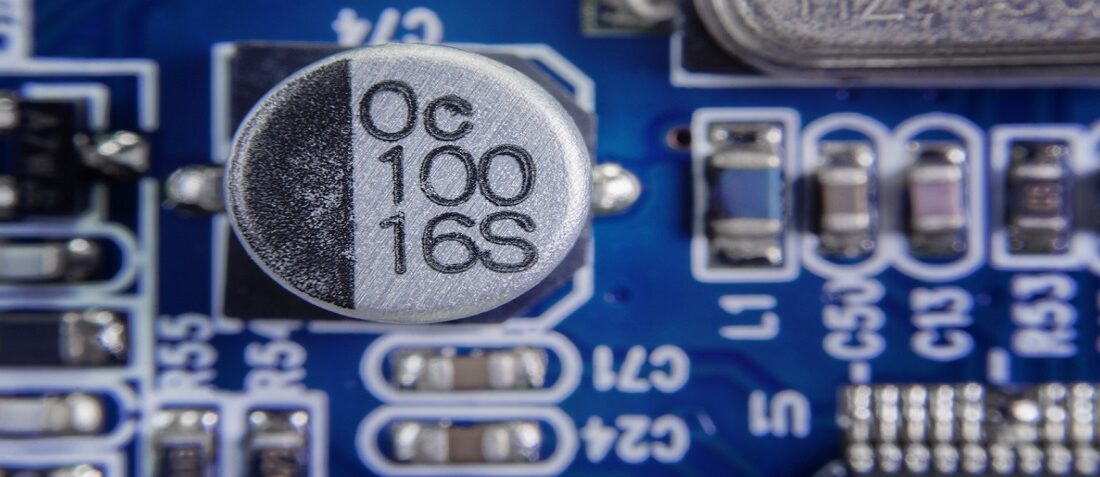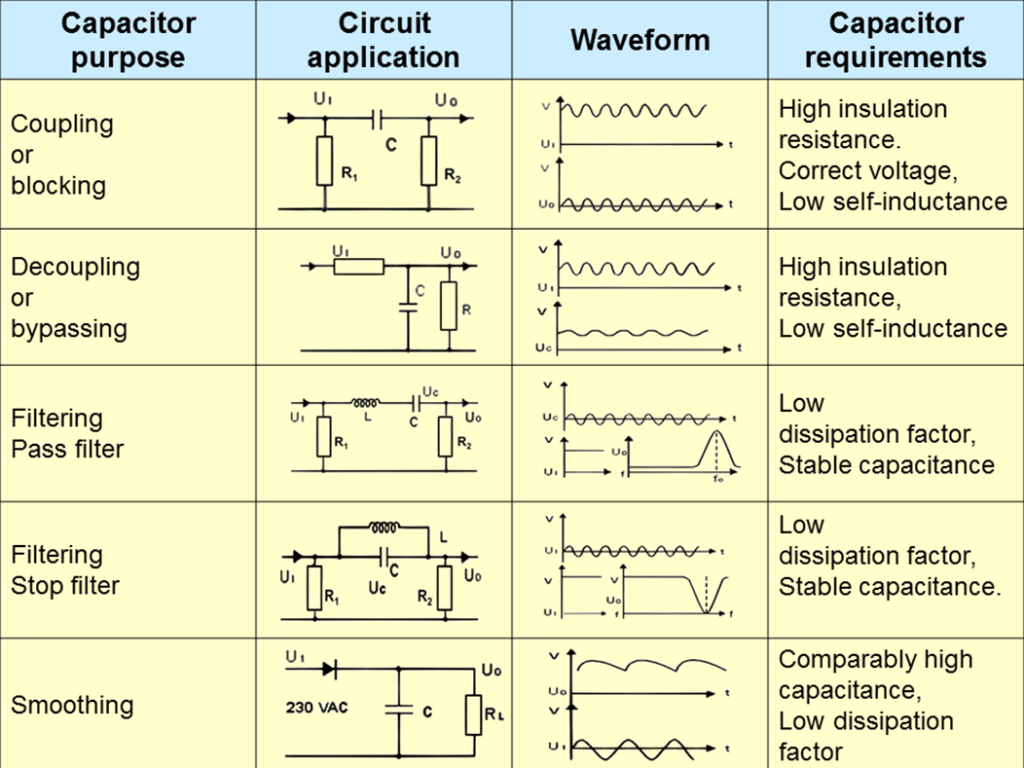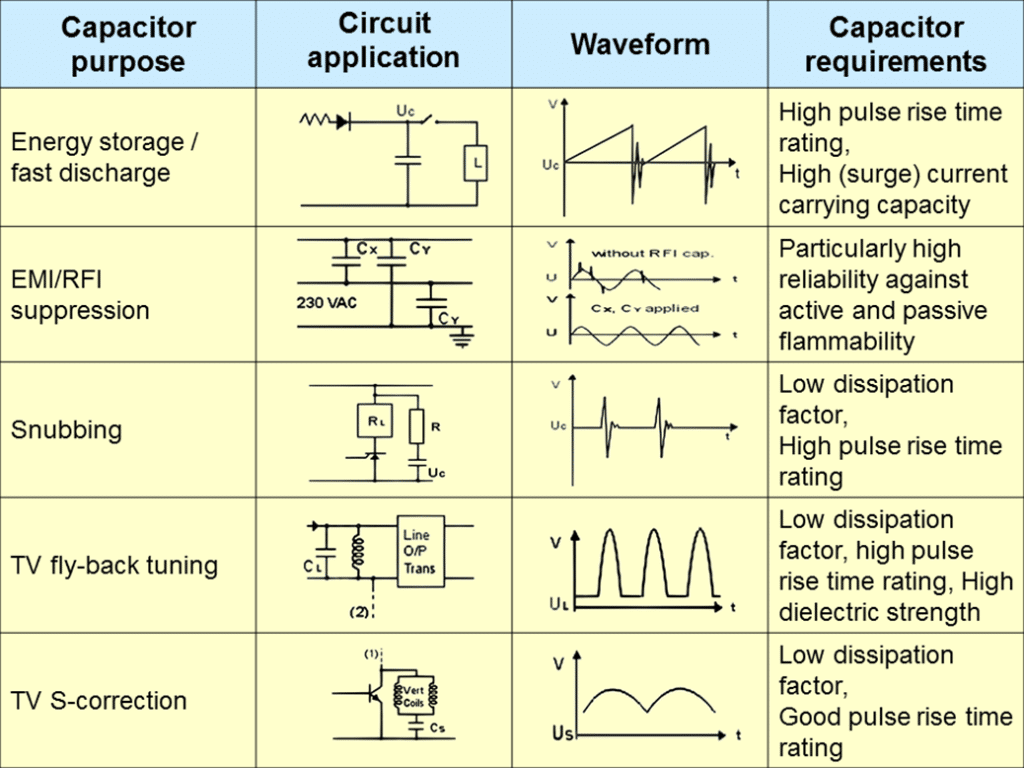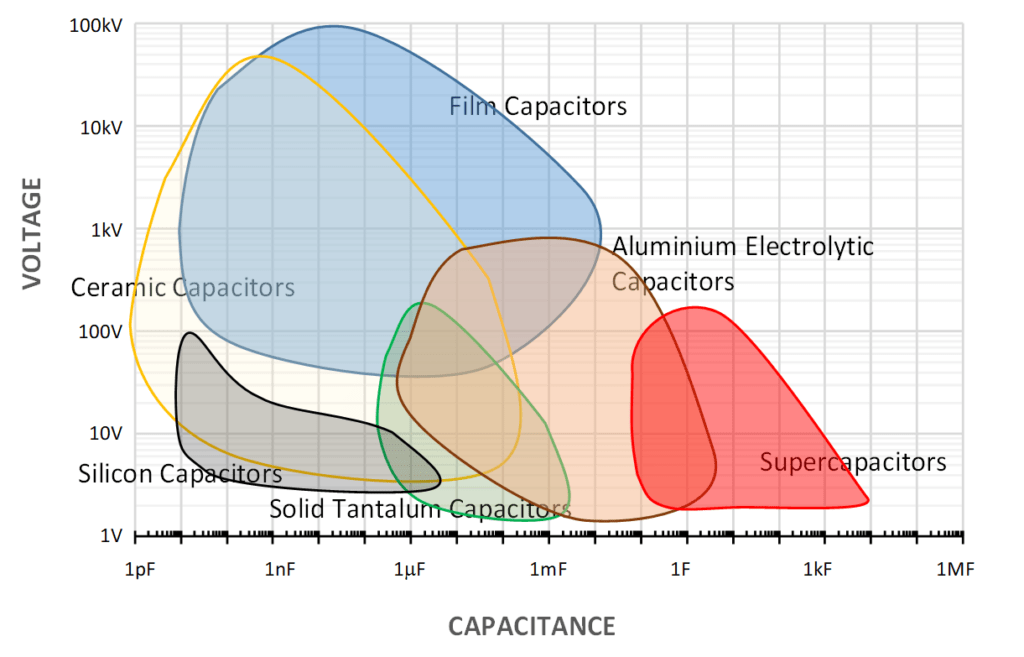
What is a Capacitor?
- Posted by doEEEt Media Group
- On December 14, 2022
- 0
Does this article explain a very basic definition of What it a capacitor is? its main application and technologies.
Capacitor Definition
Capacitors are passive electrical components to store electric energy
A capacitor is made from electrical conductive electrodes separated by an insulator. The insulating layer is called a dielectric. Although all capacitors share the same basic principle components, the material choice, configurations, and features can vary widely.
An overview of common capacitors symbols can be found in the related article here.
A capacitor can store energy in an electrostatic field generated by a potential difference across the conducting electrodes. So when an electrode is subject to a voltage, one plate of the capacitor will collect a positive charge while the other will be negatively charged. The ratio of this electric charge and the potential difference (voltage) is called the capacitance, and it is expressed in farads. The leaking current through the dielectric is called the leakage current.
Applications – What is it good for?
Capacitors are common elements in electrical circuits with several applications and different requirements, such as:


Fig.1. capacitor typical applications overview table
Capacitor Technologies
Comprehensive capacitor technologies differ in features, behavior, and range of electrical parameters covered. The most common capacitor technologies include:

Fig. 2. The most common mass volume capacitor technologies capacitance vs voltage range; source: EPCI
The amazing fact about capacitors today is that they cover over 17 ranges! Of its main parameter – CAPACITANCE this is hardly achieved by any other components technology.
Source: Epci
- Managing EEE components for LEO and lower cost space missions - December 17, 2024
- Filtering Characteristics of Parallel-Connected Fixed Capacitors in LCC-HVDC - November 21, 2024
- ALTER SPACE TEST CENTER: testing approaches for New Space - September 30, 2024


0 comments on What is a Capacitor?